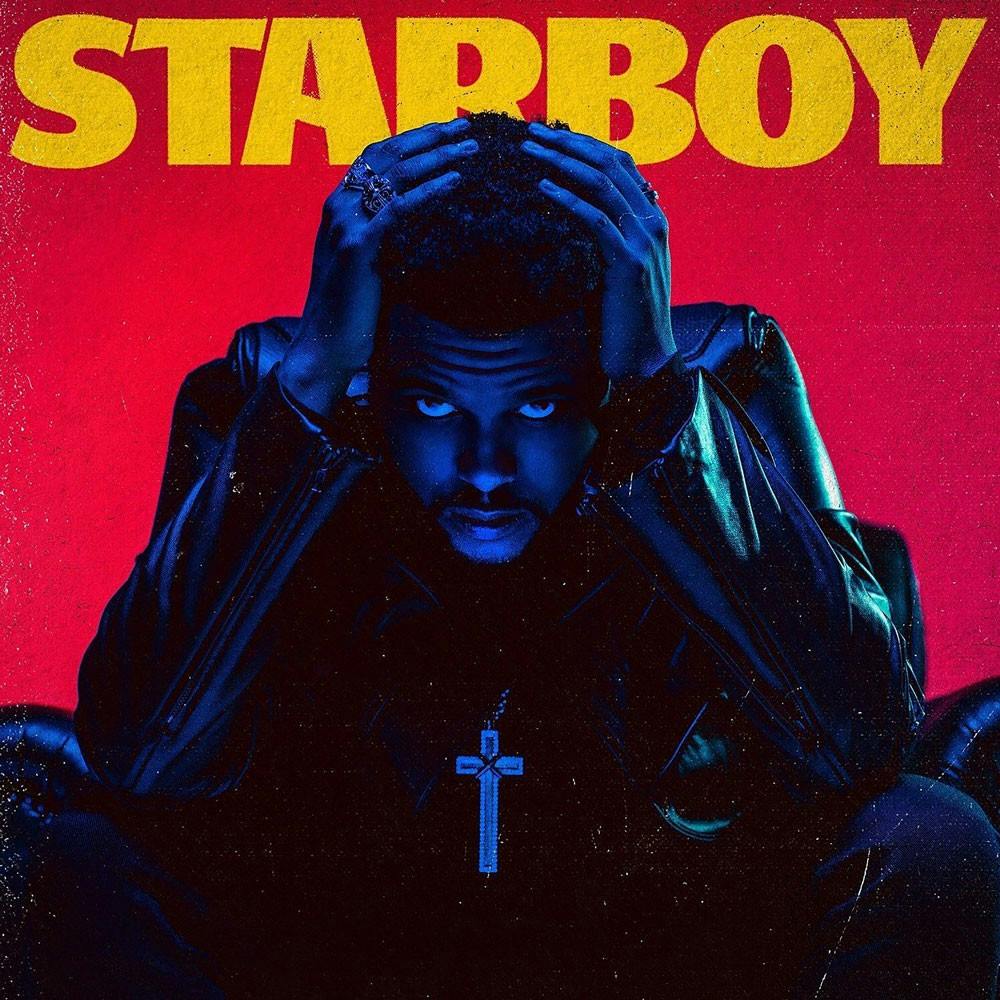The Weeknd is known for his distinct R&B style and youthful bravado. His early work saw him experimenting with various crafty sounds and samples, drawing up three mixtapes in less than a year.
If that’s the Weeknd you want on Starboy, you’re in for a surprise. Since his debut mixtape in 2011, Abel Tesfaye has created a place for himself among pop music’s most popular stars. The Weeknd has invariably watered down his unique style and replaced it with one more tailored for the radio along his journey to stardom. But that doesn’t mean this album isn’t unique.
The album title is a clue about the themes the Weeknd explores throughout this project. He focuses on perhaps the least sympathetic problem a star could have - his inability to escape from his newfound fame. It isn’t necessarily a plea for help, but instead an exuberant celebration of his transformation from indie R&B 20-year-old to world-famous artist.
And the Weeknd celebrates his fame to its full extent. On Starboy he brings in some exceptional talent and firepower, with guest features from Lana Del Rey, Daft Punk and Kendrick Lamar. These feature songs are dispersed evenly on this lengthy 18-track album. Lana Del Rey has vocals featured on both “Party Monster” and “Stargirl,” while Daft Punk help out on both the first and last track.
If what you were expecting here was a drug-laden, trippy, synthesized patchwork of catchy pop tunes, then that’s exactly what you’ll get.
Starboy opens up with the lead single of the same name. Immediately the listener is transported to the 1980s, with synth noises warping one’s sense of time. On this album, it seems the Weeknd is utterly obsessed with the 80s. The album title - a nod to David Bowie - is the first clue. But his interest in the sounds of the 80s isn’t always obvious here. It’s an intriguing source of influence from a musician who was born in 1990.
The next song, “Party Monster” is a true party hit. A heavy bass drop ignites the beginning of the track, and the Weeknd slurs out intoxicating vocals. For the most part it’s a feel-good track for an artist usually full of darker themes. “I’m good, I’m good, I’m great,” he says over and over. But the ending takes a darker turn as Lana takes over, her voice barely a whisper, delivering the words “You’re paranoid” endlessly until they’re branded into the track’s identity.
The Weeknd is an artist influenced equally by 80s legends Michael Jackson and David Bowie as well as the current trends in 2016 pop. He blends them together on Starboy making listeners question both his goals and his trajectory in music. But the Weeknd doesn’t seem so sure himself where his legacy is headed.
On “Reminder” he mentions the unexpected success of last year’s hit “I Can’t Feel My Face,” which ironically won an award on Nickelodeon’s Teen Choice Awards. “I’m like goddamn... I am not a Teen Choice,” he says on the track, reassuring himself. Despite his outward drug references and sexual lyrics, the Weeknd is now an artist that appeals to everybody – but he still speaks only for himself.
Starboy progresses as an album that retains some semblance of the Weeknd’s former lives. It’s an album full of questions about identity, but one that lacks any real answers. At times it’s scattered and grandiose, and at others it’s simple and quiet. But it lacks cohesiveness and mood in the way that his prior projects excelled. On his earlier mixtapes, a darkness loomed over the psychedelic production like a storm cloud, but it left listeners with an unusual clarity about the purpose of the Weeknd’s music.
As the album spins through its near 70 minutes of dreary tunes synthetically dressed as party bangers, we are left with more questions than we had before. But listeners can still be encouraged by the vision the Weeknd has for this project. On his previous album Beauty Behind the Madness we got a glimpse of his more personal side. On Starboy we get a raw vision of the Weeknd in control of his own destiny. Before, we got the beauty - and now we see the madness.
The album closes with “I Feel It Coming,” a dancefloor hit resembling Daft Punk’s successful 2013 song “Get Lucky.” The song transcends drugs and artificial joy, focusing solely on the exhilaration of love between two people. It’s a unique way to end an album that strays away from grounded reality. It provides a sense of clarity, a peaceful finish to the fast pace of the prior 17 songs.
He assembles an introverted cast with a similar vision – genre-shaping musicians who have carved their own paths. Lana Del Rey is pegged as “Stargirl” while Daft Punk follows the theme of otherworldly musicians, hidden behind their astronaut-like helmets. The Weeknd is the Starboy, the astronomer, the explorer, searching the vast frontier of music to find a place of his own.
Andrew Safe is a staff writer and can be reached at arts@ubspectrum.com





